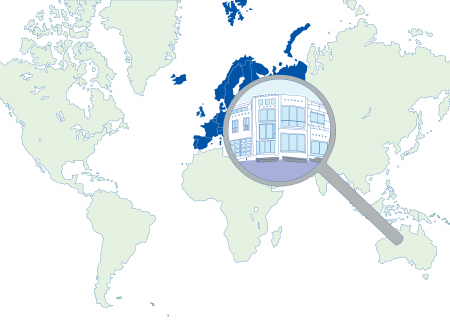Letter from Brussels
The real estate view on Brexit
Brexit has become one of the world’s most talked- and written-about events in the past few years. Early hopes for an orderly withdrawal of the UK from the EU that takes into account the needs of business have evaporated in recent months and, at the time of writing at least, it looks as if a very disorderly withdrawal is the most likely outcome.
As the details of how Brexit might actually happen were first being considered in 2017, INREV and fifteen other real estate industry associations issued a statement of ‘Guiding Principles for Future EU-UK Relations: the real estate investment perspective’. In it, and again in December 2018, we urge policy makers on both sides to avoid new barriers and to maintain market access for real estate investment, while providing the maximum possible clarity and certainty about the next steps.
At the same time, we emphasised the critical contribution that real estate investment makes to both ensuring that pension funds and insurers can meet their obligations to pensioners and policy holders, while stimulating economic activity, growth and job creation in both the UK and Europe.
Sadly, our industry’s concerns, along with the concerns of most of the financial sector, seem to have been lost in the political posturing around Brexit. Early on, policy makers in both Brussels and London indicated that the financial sector, including commercial real estate investment, needs to take steps to ensure business continuity in case of a hard Brexit.
INREV has advised members not to hold any false hopes of avoiding the impact of Brexit. Fortunately, during the last two years most parts of the industry that will be affected by a hard Brexit have been taking the necessary steps to continue to market and manage real estate funds and other vehicles after 29 March.
For fund managers in the UK, this has often meant setting up parallel structures in a remaining-27 EU Member State with AIFM authorisations and transferring some UK-domiciled funds to them. This allows the funds to be managed and marketed in the EU with an AIFMD passport post-Brexit. In cases where UK managers already have existing EU-based AIFMs, this is possible simply by transferring UK-domiciled funds to their EU affiliates. UK-based managers that choose not to use EU AIFMs can market funds through private placement regime rules after Brexit, as can UK-domiciled placement agents.
We urge policy makers on both sides to avoid new barriers and to maintain market access for real estate investment, while providing the maximum possible clarity and certainty about the next steps
For managers based in one of the remaining EU-27 Member States that want to market or manage funds in the UK after Brexit, the steps required are much simpler. They can obtain authority from the UK FCA in a fairly straight-forward process while being given two years to ensure the funds become domiciled in the UK.
Of course, an untold number of other questions remain for many members of the real estate industry that vary depending on their specific structure, operations and
portfolios. While clarity early in the process would have been very welcome, hopefully regulators will allow for continuity of operations with no cliff-edges. With Brexit likely just weeks away, though, still nothing is certain.







